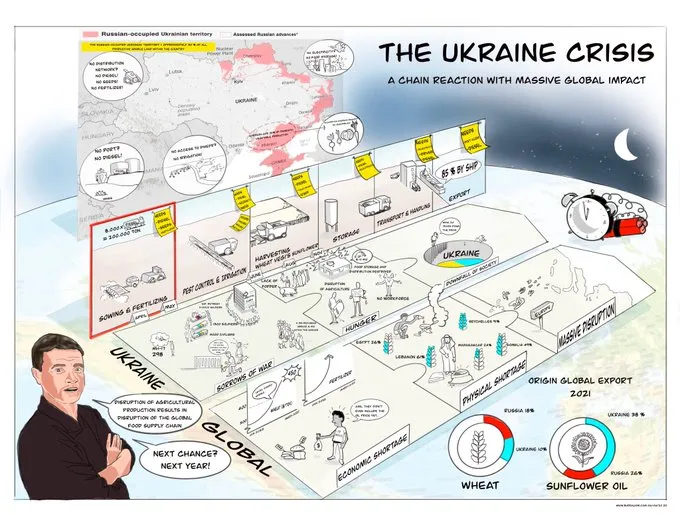“We’re living and farming in a war zone.”
That’s the harsh reality for Ukrainian farmer Kornelis Kees Huizinga (who shares his experience in a column for Global Farmer Network) as he embarks on the “most challenging experiment” of his life.
“We’re going to see how much food we can grow in the most overwhelming conditions imaginable,” Huizinga says.
Overwhelming is an understatement. Just last week, Huizinga says a fighter launched a missile that destroyed a nearby garden in his village.
“The explosion rattled the windows of my house.”
Luckily, he says no one was hurt in the attack. Huizinga is aware of the risks that come with operating in a war zone. But he’s moving forward, with planting season already underway.
“We’re farmers, after all, and this is what we do. If we don’t plant now, we can’t harvest later.”
Huizinga is putting his resourcefulness to the ultimate test. He’s anticipating limited access to essential supplies like fuel, fertilizer and crop protection.
“This will be a year like no other,” he says. “Just to survive, we’ll have to show more resilience than ever before. We’re going to see how low we can go: How much can we reduce our traditional inputs and still produce crops?”
Smart decision making when it comes to planting will be a critical first step in the process, Huizinga says. He’s planting less corn and sugar beets than usual this spring, and replacing them with spring wheat, spring barley, soybeans, navy beans and sunflowers.
“Corn also requires inputs like nitrogen fertilizer but isn’t as complicated to produce as sugar beets. Drying the corn after harvest takes a lot of gas and we are not sure if that will be available when needed. Another downside is that our corn needs an export market, and right now we can’t reach our customers. Transportation is a big problem. The ports on the Black Sea are closed. At least we can store corn in bins. If we can control for moisture and temperature, we can keep it safe for a long time.”
Huizinga has moved his family out of harm’s way and says his kids are going to school in the Netherlands. He admits he’s nervous about what the future holds but has no plans of leaving home.
“I’m back on our farm, directing our operations alongside our workers, some of whom have been with us for 20 years. We’re going to try to grow the food that we all need. This is where I belong.”








Post a comment
Report Abusive Comment